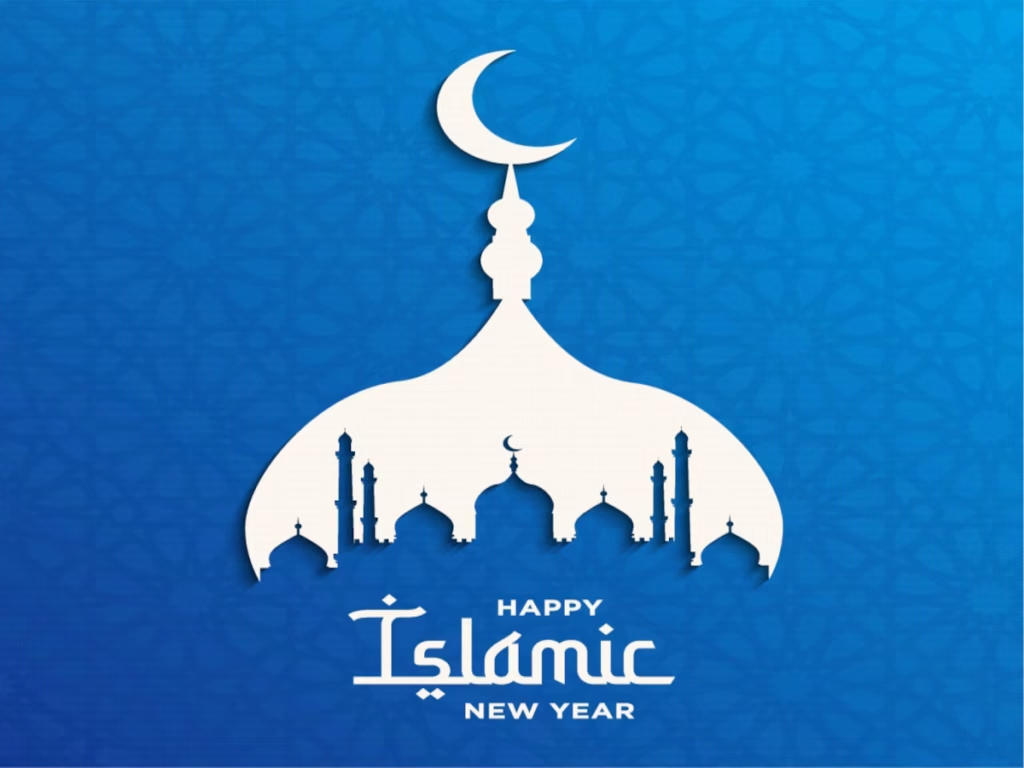While many people around the world celebrate January 1st or the Lunar New Year, millions of Muslims follow a different tradition. For them, the new year begins with the first day of Muharram, the first month of the Islamic calendar, also known as the Hijri calendar.
The Islamic New Year, unlike the festive start of the Gregorian calendar, is a time for quiet reflection, prayer, and remembering one of the most important moments in Islamic history.
What Is the Islamic New Year?
The Islamic New Year begins with the sighting of the new moon of Muharram, the first month in the Hijri calendar. This calendar is lunar, meaning it is based on the moon’s cycles. Because lunar months are shorter than solar months, the Islamic New Year moves 10 to 12 days earlier each year on the Gregorian calendar.

For Muslims, this day marks more than a new month or year—it’s a reminder of deep spiritual meaning and historical significance.
Why Is It Called the Hijri Calendar?

The Islamic calendar begins from the year of the Hijrah, or migration, of the Prophet Muhammad from Makkah (Mecca) to Madinah (Medina) in the year 622 CE. This migration wasn’t just a move from one city to another—it was a turning point in the early history of Islam.
It marked the moment when Muslims could begin to freely practice their faith and build a peaceful, united community. Because of its importance, the Islamic calendar starts from this event.
The Story Behind the Hijrah
The Prophet Muhammad and his followers were facing growing persecution in Makkah. They were being threatened, harmed, and isolated because of their beliefs. To escape this hardship and protect the growing Muslim community, the Prophet made the decision to migrate to Madinah.
The Hijrah was difficult and risky, but it symbolized hope, trust in God, and a fresh start. This event is deeply respected in the Islamic faith and is remembered each year with the arrival of Muharram.
How Is the Islamic New Year Observed?
Unlike the modern New Year’s Eve parties or fireworks seen in many cultures, the Islamic New Year is observed in a much quieter and spiritual manner.
For many Muslims, the day is spent:
- Offering prayers and reciting special supplications
- Reflecting on the lessons from the Prophet’s Hijrah
- Seeking forgiveness and setting goals for personal growth
- Reading the Qur’an or learning more about Islamic history
- Spending peaceful time with family
It is not a festive celebration, but rather a time for renewal, reflection, and spiritual focus.
The Significance of Muharram
The month of Muharram itself is highly respected in Islam. It is one of the four sacred months in the Islamic calendar, during which war and conflict are traditionally avoided.
Muslims are encouraged to increase good deeds, stay away from arguments, and focus on inner peace and devotion. Many also choose to fast during this month, especially on the 9th and 10th days of Muharram.
These days are especially important because of the historical and religious events associated with them.
The Day of Ashura
The 10th of Muharram, known as Ashura, is one of the most important days in the Islamic calendar, though its meaning differs among Muslim communities.
For Sunni Muslims, Ashura is linked to the story of Prophet Moses (Musa) and the Israelites, who were saved from Pharaoh’s army by the parting of the sea. Prophet Muhammad encouraged Muslims to fast on this day as an act of gratitude to God.
For Shia Muslims, Ashura marks the martyrdom of Imam Hussain, the grandson of the Prophet Muhammad, at the Battle of Karbala in the year 680 CE. Imam Hussain stood for justice, truth, and faith, and his tragic death is deeply mourned. In many Shia communities, Ashura is observed with processions, speeches, and acts of remembrance.
How Different Countries Observe It
The way the Islamic New Year is marked varies across countries and cultures:
- In Indonesia and Malaysia, special prayers and community gatherings are held in mosques.
- In India and Pakistan, the day may include religious sermons, especially among Shia communities who organize mourning events.
- In Iran and Iraq, large public gatherings and processions are held in honor of Imam Hussain.
- In Saudi Arabia, while the month is considered sacred, the new year begins in a more private and quiet way.
Some countries declare the first day of Muharram as a public holiday, while others keep it a regular working day.
A Spiritual Fresh Start
For Muslims around the world, the Islamic New Year is more than a date. It is a reminder of deep faith, historical sacrifice, and the constant journey of self-improvement. The Hijrah was not just a physical migration—it was a movement toward peace, unity, and a better life guided by faith.
Every year, as the new moon of Muharram appears in the sky, Muslims are encouraged to start fresh—by forgiving past mistakes, renewing their intentions, and drawing closer to God.
In today’s busy world, where time moves fast and noise is everywhere, the Islamic New Year offers a quiet space to pause, reflect, and move forward with purpose.
Also read: Dubai Jazz Festival 2025 Was Pure Magic—Here’s Everything You Missed













